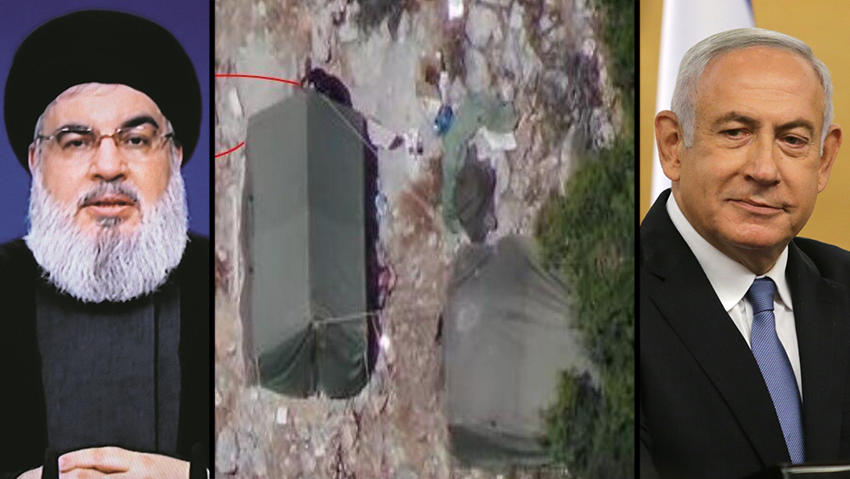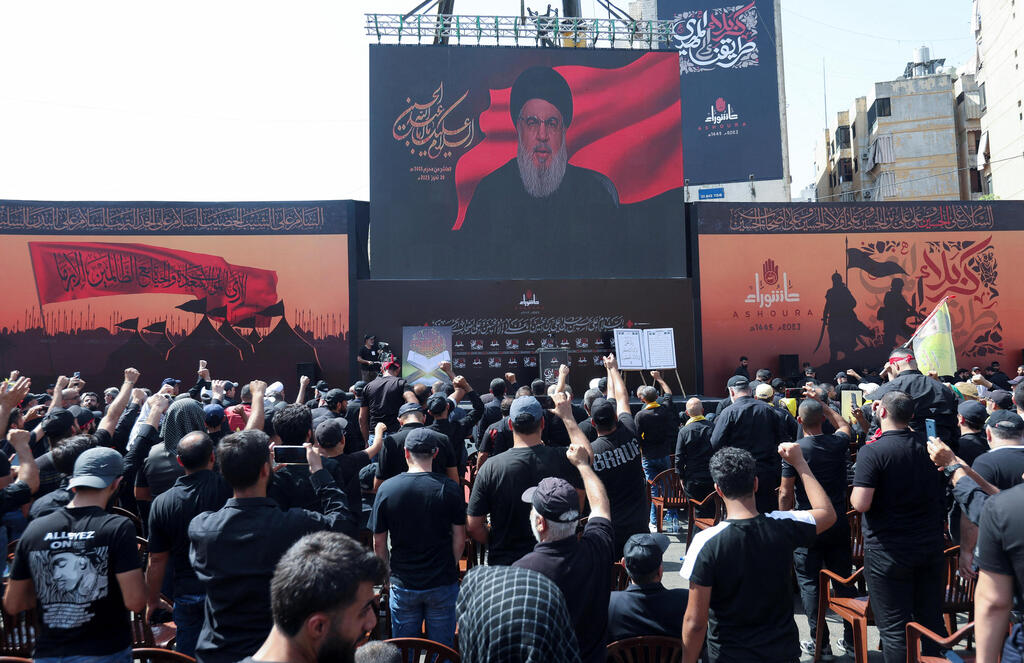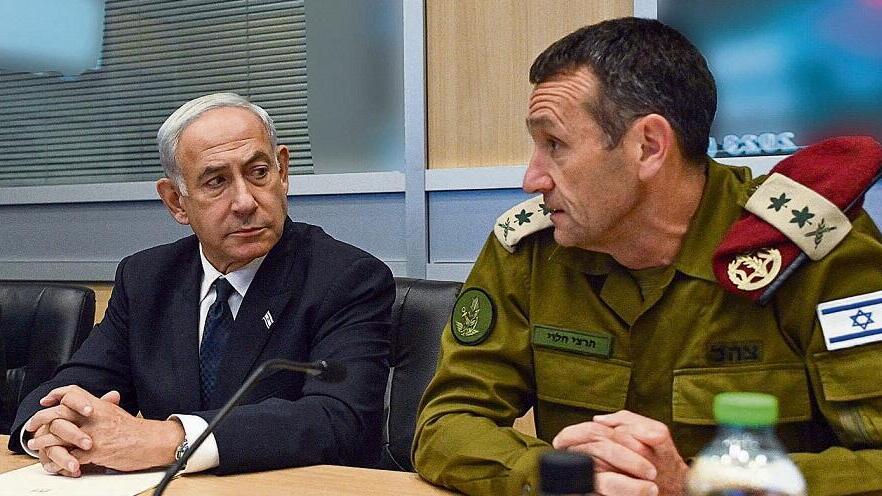Getting your Trinity Audio player ready...
Security officials and members of the IDF said the risk of war with Hezbollah across the northern border, was the highest since the end of the Second Lebanon War in 2006. Prime Minister Benjamin Netanyahu was briefed on the concerns in a meeting convened to discuss the increasing tension with the Iran-backed terrorist organization.
More stories:
The Prime Minister's Office made the scheduled meeting known to the media and added a vague statement when it was over. It is therefore not far-fetched to assume that the government intended not only to alert the public but also to send a clear message to Hezbollah Secretary-General Hassan Nasrallah.
3 View gallery


Hassan Nasrallah, Hezbollah tents in the northern border, Benjamin Netanyahu
(Photo: Alex Kolomoisky, EPA)
Netanyahu and a select group of ministers were also briefed on an attempted weapons smuggling across the Jordanian border, which officials said was meant to reach terror actors on the West Bank. Military Intelligence officials described how attempts were made to incite terror in the area, with funding transferred by the Hamas and Islamic Jihad terror factions, via local banks.
Nasrallah was changing his tactics and advancing the Radwan Unit - tasked with invading Israeli communities in the event of war, to the border area, and Iran was exerting pressure on the Lebanon- based Islamist group, to act against the IDF, the officials said in the Sunday meeting. But the security officials also noted that Tehran was not interested in an all-out war between Hezbollah and Israel.
However, Tehran also warned Hezbollah against starting a war with Israel, to avoid wasting an opportunity to retaliate, in case the IDF strikes at their nuclear facilities.
As an avid follower of Israeli media, Nasrallah seized the opportunity to warn Israel against taking action in response to his provocations.
He understands that any Israeli military action, whether in the North or the South, would benefit from the element of surprise and although there has been much media coverage of the recent incident on the northern border, secrecy will become a critical element of Israel's success.
The statement put out by the PMO after the briefing with security officials said Netanyahu accepted the military's recommendations, to avoid conflict. The statement could be seen as the prime minister's vote of confidence in his security officials and the IDF, but it could also be his way of avoiding responsibility should conflict be unavoidable.
Thus far, the IDF and especially the senior commander of the northern sector, have ongoing Hezbollah provocations to deal with including tents set up in Israeli territory by Hezbollah operatives, which had not been removed as well as other infringements of Israel's sovereignty that have weakened Israel's deterrence.
Despite rising tensions, military intelligence officials still believe Nasrallah was not interested in starting a war but was, for the first time in 17 years, willing to test Israel's patience, and if necessary engage in a days-long round of fighting that could easily get out of control. That was the crux of the briefing Netanyahu received on Sunday.
Even if war was not imminent, warnings expressed in letters sent by senior IDF officers about the repercussions of the coalition's legislative push to alter Israel's judicial system, leave no room for doubt: Nasrallah sees Israel as weakened by internal conflicts and the deteriorating relations with the U.S.
IDF Chief of Staff Lt. Gen. Herzi Halevi, made sure to reflect his agreement with the assessments presented to the prime minister before and after the legislation was passed last Monday, when the prime minister finally agreed to meet with him.



